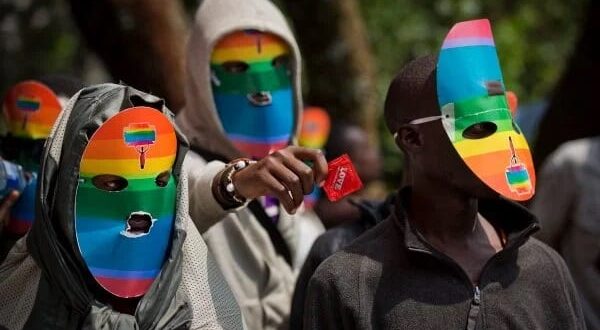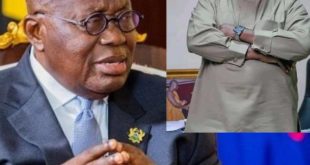National laws criminalizing consensual same-sex relations between adults exist in a minimum of 67 countries.
These laws may specifically target certain sexual acts, and in some cases, they are general and open to interpretation.
Penalties range from fines to life imprisonment and, in extreme cases, the death penalty.
Law enforcement agencies in certain places actively pursue and prosecute individuals suspected of being lesbian, gay, bisexual, or transgender.
In other instances, while the laws are rarely enforced, they still have severe consequences for LGBTQ+ people, affecting their access to employment, health services, and police protection.
Furthermore, at least nine countries have national laws criminalizing forms of gender expression that disproportionately impact transgender and gender-nonconforming individuals. For example:
Additionally, 15 countries maintain unequal ages of consent, imposing a higher bar for same-sex couples than for different-sex couples or for anal sex compared to vaginal sex.
This includes countries like Canada and Chile.
In 11 states of the United States, unenforceable laws prohibiting consensual same-sex conduct remain on the books despite a 2003 Supreme Court decision that found such laws unconstitutional.
Key Facts
65 jurisdictions criminalise private, consensual, same-sex sexual activity. The majority of these jurisdictions explicitly criminalise sex between men via ‘sodomy’, ‘buggery’ and ‘unnatural offences’ laws. Almost half of them are Commonwealth jurisdictions.
41 countries criminalise private, consensual sexual activity between women using laws against ‘lesbianism’, ‘sexual relations with a person of the same sex’ and ‘gross indecency’. Even in jurisdictions that do not explicitly criminalise women, lesbians and bisexual women have been subjected to arrest or threat of arrest.
12 countries have jurisdictions in which the death penalty is imposed or at least a possibility for private, consensual same-sex sexual activity. At least 6 of these implement the death penalty – Iran, Northern Nigeria, Saudi Arabia, Somalia and Yemen – and the death penalty is a legal possibility in Afghanistan, Brunei, Mauritania, Pakistan, Qatar, UAE and Uganda.
14 countries criminalise the gender identity and/or expression of transgender people, using so-called ‘cross-dressing’, ‘impersonation’ and ‘disguise’ laws. In many more countries transgender people are targeted by a range of laws that criminalise same-sex activity and vagrancy, hooliganism and public order offences.
List of African countries That Passed Laws Against LGBTQ+
Uganda
Uganda criminalises same-sex sexual activity between men and between women. Sentences include a maximum penalty of death. There is evidence of the law being enforced in recent years and LGBT people are regularly subjected to discrimination and violence.
The Anti-Homosexuality Act 2023, which came into force in May 2023, significantly expanded the offences criminalising LGBT people. This included introducing the offence of “aggravated homosexuality” which includes the death penalty for “serial offenders”. Both men and women are criminalised under these laws.
The Penal Code 1950 was inherited from the British during the colonial period, in which the English criminal law was imposed upon Uganda. Uganda retained the provision upon independence and in recent years there have been repeated attempts to strengthen laws criminalising LGBT people in Uganda, most recently with the passage of the Anti-Homosexuality Act 2023.
Zambia
Zambia criminalises same-sex sexual activity between men and between women. Sentences include a maximum penalty of fourteen years’ imprisonment. There is evidence of the law being enforced in recent years, and LGBT people are regularly subjected to discrimination and violence.
The law was inherited from the British during the colonial period, in which the English criminal law was imposed upon Zambia. Zambia retained the provision upon independence and continues to criminalise same-sex sexual activity today.
Zimbabwe
Zimbabwe criminalises same-sex sexual activity between men. Sentences include a maximum penalty of one year imprisonment and a fine. There is some evidence of the law being enforced in recent years, and LGBT people are regularly subjected to discrimination and violence.
Tunisia
Tunisia criminalises same-sex sexual activity between men and between women. Sentences include a maximum penalty of three years’ imprisonment. There is evidence of the law being enforced in recent years, and LGBT people are regularly subjected to discrimination and violence.
Tunisia adopted the ‘sodomy’ provision in its 1913 Penal Code, which is still in force today (subject to amendments). Tunisia was at the time a protectorate state of France, however France had long since decriminalised same-sex sexual activity. As such the criminalising law is of local origin.
Tanzania
Tanzania criminalises same-sex sexual activity between men and between women. Sentences include a maximum penalty of life imprisonment. There is evidence of the law being enforced in recent years, and LGBT people are regularly subjected to discrimination and violence.
The Gambia
The Gambia criminalises same-sex sexual activity between men and between women. The gender expression of trans people is also criminalised. Sentences include a maximum penalty of life imprisonment. There is evidence of the law being enforced in recent years, and LGBT people are regularly subjected to discrimination and violence.
Togo
Togo criminalises same-sex sexual activity between men and between women. Sentences include a maximum penalty of three years’ imprisonment and a fine. There is some evidence of the law being enforced in recent years, and LGBT people are subjected to discrimination and violence.
Somalia
Somalia criminalises same-sex sexual activity between men and between women. Sentences include a maximum penalty of death. There is some evidence of the law being enforced in recent years, and LGBT people are regularly subjected to discrimination and violence.
South Sudan
South Sudan criminalises same-sex sexual activity between men. The gender expression of trans people is also criminalised. Sentences include a maximum penalty of fourteen years’ imprisonment and a fine. There is little evidence of the law being enforced in recent years, however LGBT people are regularly subjected to discrimination and violence.
Sudan
Sudan criminalises same-sex sexual activity between men and between women. Sentences include a maximum penalty of life imprisonment. There is some evidence of the law being enforced in recent years, and LGBT people are regularly subjected to discrimination and violence.
Nigeria
Nigeria criminalises same-sex sexual activity between men and between women. The gender expression of trans people is also criminalised. Sentences include a maximum penalty of death by stoning. There is evidence of the law being enforced in recent years, and LGBT people are regularly subjected to discrimination and violence.
Senegal
Senegal criminalises same-sex sexual activity between men and between women. Sentences include a maximum penalty of five years’ imprisonment and a fine. There is evidence of the law being enforced in recent years, and LGBT people are regularly subjected to discrimination and violence.
Sierra Leone
Sierra Leone criminalises same-sex sexual activity between men. Sentences include a maximum penalty of life imprisonment. There is limited evidence of the law being enforced in recent years, however LGBT people are regularly subjected to discrimination and violence.
Mauritania
Mauritania criminalises same-sex sexual activity between men and between women. Sentences include a maximum penalty of death by stoning, although there is a de facto moratorium on its use. There is evidence of the law being enforced in recent years, though little information is available about the extent of discrimination and violence against LGBT people.
Morocco
Morocco criminalises same-sex sexual activity between men and between women. Sentences include a maximum penalty of three years’ imprisonment and a fine. There is evidence of the law being enforced in recent years, and LGBT people are regularly subjected to discrimination and violence.
Namibia
Namibia criminalises same-sex sexual activity between men. The sentence available under the law is not clear. There is some evidence of the law being enforced in recent years and of LGBT people being subjected to discrimination and violence.
Liberia
Liberia criminalises same-sex sexual activity between men and between women. Sentences include a maximum penalty of one year imprisonment. There is some evidence of the law being enforced in recent years, and LGBT people are regularly subjected to discrimination and violence.
Libya
Libya criminalises same-sex sexual activity between men and between women. Sentences include a maximum penalty of five years’ imprisonment. There is some evidence of the law being enforced in recent years, and LGBT people are regularly subjected to discrimination and violence.
Malawi
Malawi criminalises same-sex sexual activity between men and between women. The gender expression of trans people is also criminalised. Sentences include a maximum penalty of fourteen years’ imprisonment with corporal punishment. A moratorium on prosecutions has been in place since 2014, however LGBT people are regularly subjected to discrimination and violence.
Guinea
Guinea criminalises same-sex sexual activity between men and between women. Sentences include a maximum penalty of three years’ imprisonment and a fine. There is little evidence of the law being enforced in recent years, however LGBT people are subjected to discrimination and violence.
Guinea has criminalised same-sex sexual activity since at least its 1998 Penal Code. In 2016 a new Penal Code was adopted, in which the criminalising provision was maintained and substantively unchanged.
Kenya
Kenya criminalises same-sex sexual activity between men. Sentences include a maximum penalty of fourteen years’ imprisonment. There is evidence of the law being enforced in recent years, and LGBT people are regularly subjected to discrimination and violence.
Same-sex sexual activity is prohibited under the Penal Code 1930, which criminalises acts of ‘gross indecency’ and ‘carnal knowledge against the order of nature’. These provisions carry a maximum penalty of fourteen years’ imprisonment. Only men are criminalised under this law.
The law was inherited from the British during the colonial period, in which the English criminal law was imposed upon Kenya. Kenya retained its colonial-era penal code upon independence and continues to criminalise same-sex sexual activity today.
Eritrea
Eritrea criminalises same-sex sexual activity between men and between women. Sentences include a maximum penalty of seven years’ imprisonment. There is limited evidence of the law being enforced in recent years, and LGBT people are vulnerable to discrimination and violence.
The law was inherited during Ethiopian rule through the 1957 Penal Code. Eritrea’s first Penal Code since independence, adopted in 2015, maintained the criminalising provision with an enhanced sentence.
Eswatini
Eswatini criminalises same-sex sexual activity between men. The sentence available for this offence is not clear. There is no evidence of the law being enforced in recent years, however LGBT people are vulnerable to discrimination and violence.
The law was inherited from the British during the colonial period, in which the English criminal law was imposed upon Eswatini. Eswatini retained the provision upon independence and continues to criminalise same-sex sexual activity today.
Ethiopia
Ethiopia criminalises same-sex sexual activity between men and between women. Sentences include a maximum penalty of one year imprisonment. There is some evidence of the law being enforced in recent years, and LGBT people are regularly subjected to discrimination and violence.
Unlike almost all other African states, Ethiopia was not colonised by a European country so its criminalising law is of local origin. Prior to the adoption of the 2004 Criminal Code, the 1957 Penal Code was in force in Ethiopia and criminalised ‘unnatural carnal offences’.
Chad
Chad criminalises same-sex sexual activity between men and between women. Sentences include a maximum penalty of two years’ imprisonment and a fine. There is limited evidence of the law being enforced in recent years, or of LGBT people being subjected to discrimination and violence.
Chad criminalised same-sex sexual activity for the first time with the passage of the revised Penal Code in 2017.
Comoros
Comoros criminalises same-sex sexual activity between men and between women. Sentences include a maximum penalty of five years’ imprisonment and a fine. There is very limited evidence of the law being enforced in recent years, and equally little information on the extent of discrimination and violence against LGBT people.
Comoros has a mixed legal system, with influences from French, Islamic and customary law. Until independence in 1975 Comoros was part of the French Republic which did not criminalise same-sex sexual activity at that time, however the criminalising provisions were introduced by Comoros as an independent state.
Egypt
Egypt criminalises same-sex sexual activity between men. Sentences include a maximum penalty of three years’ imprisonment and a fine. There is evidence of the law being enforced in recent years, and LGBT people are regularly subjected to discrimination and violence.
Chad criminalised same-sex sexual activity for the first time with the passage of the revised Penal Code in 2017.
Algeria
Algeria criminalises same-sex sexual activity between men and between women. Sentences include a maximum penalty of three years’ imprisonment and a fine. There is some evidence of the law being enforced in recent years, and LGBT people are vulnerable to discrimination and violence.
Algerian law has its origins in French law, having been a French colony until independence in 1962, though Islamic law is also influential. The 1966 Penal Code, enacted shortly after independence, remains in force today and is the principal criminal law of Algeria.
Burundi
Burundi criminalises same-sex sexual activity between men and between women. Sentences include a maximum penalty of two years’ imprisonment and fine. There is some evidence of the law being enforced in recent years, and LGBT people are regularly subjected to discrimination and violence.
With the passage of the 2009 Penal Code, Burundi criminalised same-sex sexual activity for the first time in its history. It had never previously criminalised since independence in 1962.
Cameroon
Cameroon criminalises same-sex sexual activity between men and between women. Sentences include a maximum penalty of five years’ imprisonment and a fine. There is substantial evidence of the law being routinely enforced in recent years, and LGBT people are regularly subjected to discrimination and violence.
Cameroon’s first Penal Code in 1965 did not criminalise same-sex sexual activity, however an amendment introduced in 1972 added the offence of ‘homosexuality’ which has been retained until today.
Credit: Human Dignity Trust
Ghana
However, in Ghana, the law to criminalize lesbian, gay, bisexual, and transgender (LGBT) activities and criminalizes their promotion, advocacy, and funding in the country awaits approval from President Akufo-Addo.
The private member’s bill, The Human Sexual rights and Ghanaian Family Values Bill, passed its third reading in the Ghanaian Parliament on 28 February. The bill will not become law until it receives Presidential assent.
2023
A private member’s Family Values Bill (the “anti-LGBT Bill”), introduced in 2021, received its second reading in Parliament in July. The Bill is aimed at criminalising the ‘promotion of LGBT+ rights’, essentially criminalising any LGBT advocacy in Ghana. The Bill’s scope is extensive, increasing the maximum penalty available to five years’ imprisonment, and expanding the criminalisation of LGBT people to include merely identifying as LGBTQ+, advocating for LGBTQ+ rights and discussing LGBTQ+ issues in public.
The Bill has received significant support from within Ghana including from the Ghana Catholic Church (although the Ghana Anglican Church released a statement labelling the Bill too severe), but it has been widely condemned by the international community, including civil society, the Independent Expert on SOGI and other UN mandate holders, and religious leaders in the UK such as the Archbishop of Canterbury. Human Rights Watch stated that the Bill represents a ‘witch-hunt against LGBT people’ and takes all of the bad parts from other anti-LGBT Bills in Russia, Nigeria, Uganda, and Hungary and adds some of its own.
In December supporters of the Bill gave public statements that it would be passed before Christmas, requiring its passage through both the consideration stage and a third reading within that time. Ultimately however only 6 of the total 25 clauses in the Bill were discussed and Parliament adjourned for Christmas without the Bill having been passed into law.
2021
In March, a group of eight MPs introduced the anti-LGBT Bill The bill was a response to the opening of an LGBT advocacy centre in Accra. The group stated that they hoped to pass the bill before the parliamentary session ended in March that year.
In August, the anti-LGBT Bill received its first reading.
The Bill was laid before Parliament and in September the Select Committee on Constitutional, Legal and Parliamentary Affairs received 200 memoranda in respect of the Bill following a public notice. This included memoranda from the Human Rights Coalition. In November the Committee started public hearings in relation to the Bill. The subsequent Select Committee Report made some observations and proposed amendments to the Bill.
2013
In March, the Deputy Attorney-General and Deputy Minister of Justice gave guidance on the issue: “Unless and until an issue, be it social, religious, economic or political is sufficiently advanced in the moral consciousness of the citizenry and an unequivocal demand is made on Parliament to address the issue through effective legislation, any attempt to bypass the true wishes of the people will be counter-productive.”
THANK YOU for constantly reading stories on MyGhanaMedia.com, a news publishing website from Ghana. Kindly like, follow, comment, and SHARE stories on all social media platforms for more entertaining updates!
Follow us on Twitter: https://twitter.com/
Source: MyGhanaMedia.com
There are four types of content published on MyGhanaMedia.com daily: curated content; syndicated content; user-generated content; and original content.
 MYGHANAMEDIA.COM Best Source Of Latest News
MYGHANAMEDIA.COM Best Source Of Latest News





